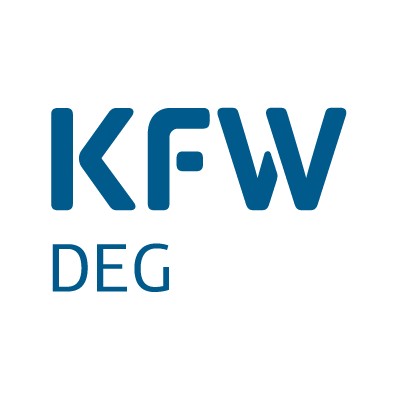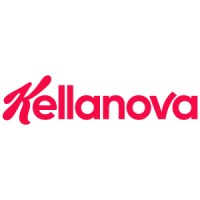Green Lights and Market Moves: The CCI's Recent Approvals
January 2, 2025, 10:02 pm

Location: Philippines, Metro Manila, Pasig
Employees: 1001-5000
Founded date: 1966
Total raised: $140M

Location: United States, District of Columbia, Washington
Employees: 1001-5000
The Competition Commission of India (CCI) is a gatekeeper. It decides who enters the market and who stays out. Recently, it opened the gates wide for two significant deals. One involves the World Bank’s International Finance Corporation (IFC), the Asian Development Bank (ADB), and Germany's DEG acquiring a stake in Fourth Partner Energy. The other is Mars Inc.’s $36 billion acquisition of Kellanova, the maker of Pringles. These approvals signal a shift in the Indian economic landscape.
First, let’s dive into the renewable energy sector. Fourth Partner Energy (FPE) is a rising star in India’s green energy scene. The company specializes in constructing and financing renewable energy projects. With the backing of IFC, ADB, and DEG, FPE is set to expand its renewable energy portfolio to 3.5 gigawatts (GW) by 2026. This is no small feat. It’s a bold move in a country where energy needs are skyrocketing.
The joint investment of $275 million will fuel FPE’s ambitions. It’s like pouring gasoline on a fire. The funds will support new projects and help the company scale its operations. The CCI’s approval is a crucial step. It ensures that the investment can flow without bureaucratic roadblocks. The world is watching India. The country is positioning itself as a leader in renewable energy. This investment is a testament to that vision.
Now, let’s shift gears to the food industry. Mars Inc. is a household name. Its $36 billion acquisition of Kellanova is a game-changer. Kellanova is not just any snack company; it’s a giant in the industry. This acquisition is about more than just snacks. It’s about market dominance. Mars is expanding its footprint in the global snack market. The CCI’s approval is a green light for this ambitious plan.
Mars has a long history. Founded over a century ago, it has evolved from a candy maker to a global food powerhouse. The acquisition of Kellanova aligns with its strategy to diversify and strengthen its product offerings. It’s like adding new colors to a painter’s palette. The combination of Mars and Kellanova creates a formidable entity in the snack sector.
In another notable deal, the CCI approved Authum Investment & Infrastructure’s acquisition of a 72.8% stake in Pratap Snacks. This snack maker is gaining traction in India. The acquisition is a strategic move. It allows Authum and its partner, Mahi Madhusudan Kela, to tap into the growing demand for snacks. The snack industry is booming. People are snacking more than ever. This deal positions Authum to capitalize on that trend.
The CCI’s role in these transactions is pivotal. It ensures that competition remains fair. It prevents monopolies from forming. The commission scrutinizes each deal carefully. It assesses the impact on the market and consumers. In this case, the approvals indicate a healthy competitive landscape. They show that the CCI is open to foreign investments and large-scale mergers.
These approvals also reflect a broader trend. India is becoming a magnet for global investments. The country’s economic policies are evolving. The government is encouraging foreign direct investment (FDI). This is crucial for growth. It creates jobs and boosts the economy. The renewable energy sector and the food industry are just two examples of this trend.
The renewable energy push is particularly significant. India aims to meet its energy needs sustainably. The government has set ambitious targets for renewable energy capacity. Investments like those in Fourth Partner Energy are essential. They help bridge the gap between demand and supply. As the world grapples with climate change, India’s focus on green energy is commendable.
On the other hand, the food industry is a different beast. It’s about consumer behavior. People are increasingly health-conscious. They want snacks that are not just tasty but also nutritious. Mars’ acquisition of Kellanova is a response to this demand. It’s about staying relevant in a fast-changing market.
The CCI’s decisions are not just approvals; they are signals. They indicate where the market is headed. They show that India is ready for big players. The renewable energy sector is ripe for investment. The food industry is evolving rapidly. Both sectors offer immense potential.
In conclusion, the CCI’s recent approvals are more than just regulatory nods. They are stepping stones toward a more dynamic economy. The investments in Fourth Partner Energy and the acquisition of Kellanova by Mars are pivotal moments. They reflect India’s aspirations on the global stage. As the country embraces change, the world watches closely. The future is bright, and the opportunities are endless.
First, let’s dive into the renewable energy sector. Fourth Partner Energy (FPE) is a rising star in India’s green energy scene. The company specializes in constructing and financing renewable energy projects. With the backing of IFC, ADB, and DEG, FPE is set to expand its renewable energy portfolio to 3.5 gigawatts (GW) by 2026. This is no small feat. It’s a bold move in a country where energy needs are skyrocketing.
The joint investment of $275 million will fuel FPE’s ambitions. It’s like pouring gasoline on a fire. The funds will support new projects and help the company scale its operations. The CCI’s approval is a crucial step. It ensures that the investment can flow without bureaucratic roadblocks. The world is watching India. The country is positioning itself as a leader in renewable energy. This investment is a testament to that vision.
Now, let’s shift gears to the food industry. Mars Inc. is a household name. Its $36 billion acquisition of Kellanova is a game-changer. Kellanova is not just any snack company; it’s a giant in the industry. This acquisition is about more than just snacks. It’s about market dominance. Mars is expanding its footprint in the global snack market. The CCI’s approval is a green light for this ambitious plan.
Mars has a long history. Founded over a century ago, it has evolved from a candy maker to a global food powerhouse. The acquisition of Kellanova aligns with its strategy to diversify and strengthen its product offerings. It’s like adding new colors to a painter’s palette. The combination of Mars and Kellanova creates a formidable entity in the snack sector.
In another notable deal, the CCI approved Authum Investment & Infrastructure’s acquisition of a 72.8% stake in Pratap Snacks. This snack maker is gaining traction in India. The acquisition is a strategic move. It allows Authum and its partner, Mahi Madhusudan Kela, to tap into the growing demand for snacks. The snack industry is booming. People are snacking more than ever. This deal positions Authum to capitalize on that trend.
The CCI’s role in these transactions is pivotal. It ensures that competition remains fair. It prevents monopolies from forming. The commission scrutinizes each deal carefully. It assesses the impact on the market and consumers. In this case, the approvals indicate a healthy competitive landscape. They show that the CCI is open to foreign investments and large-scale mergers.
These approvals also reflect a broader trend. India is becoming a magnet for global investments. The country’s economic policies are evolving. The government is encouraging foreign direct investment (FDI). This is crucial for growth. It creates jobs and boosts the economy. The renewable energy sector and the food industry are just two examples of this trend.
The renewable energy push is particularly significant. India aims to meet its energy needs sustainably. The government has set ambitious targets for renewable energy capacity. Investments like those in Fourth Partner Energy are essential. They help bridge the gap between demand and supply. As the world grapples with climate change, India’s focus on green energy is commendable.
On the other hand, the food industry is a different beast. It’s about consumer behavior. People are increasingly health-conscious. They want snacks that are not just tasty but also nutritious. Mars’ acquisition of Kellanova is a response to this demand. It’s about staying relevant in a fast-changing market.
The CCI’s decisions are not just approvals; they are signals. They indicate where the market is headed. They show that India is ready for big players. The renewable energy sector is ripe for investment. The food industry is evolving rapidly. Both sectors offer immense potential.
In conclusion, the CCI’s recent approvals are more than just regulatory nods. They are stepping stones toward a more dynamic economy. The investments in Fourth Partner Energy and the acquisition of Kellanova by Mars are pivotal moments. They reflect India’s aspirations on the global stage. As the country embraces change, the world watches closely. The future is bright, and the opportunities are endless.

